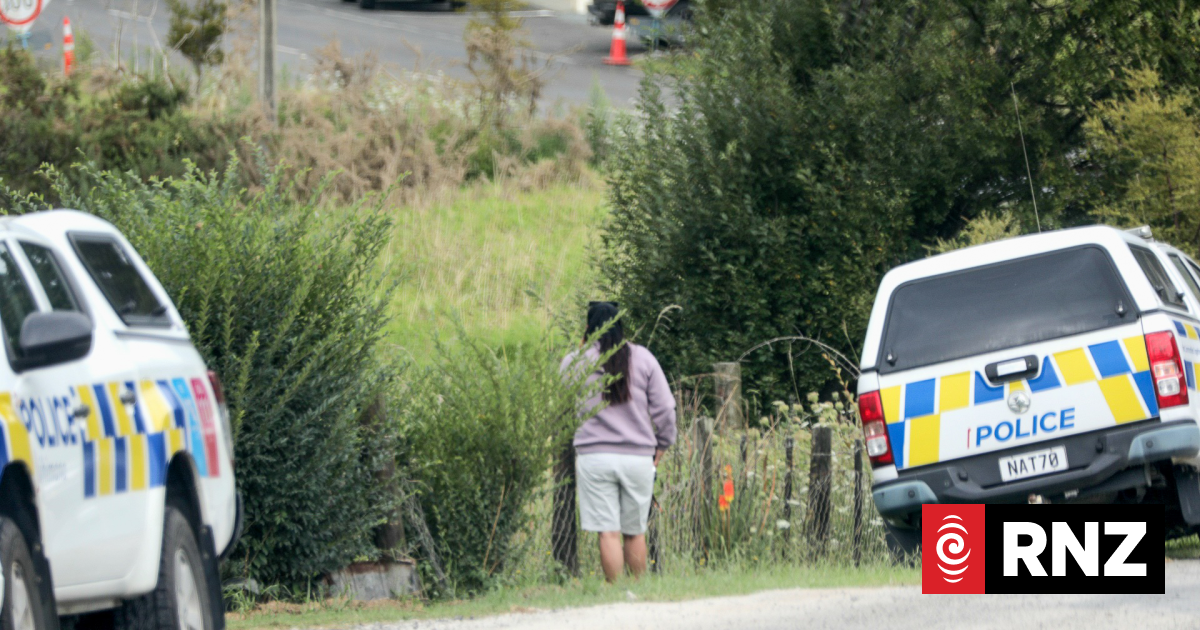Michael Ferguson/Supplied
Michael Ferguson, 17, is calling on the voting age to be lowered.
OPINION: I couldn’t vote in these local elections, but their outcome will affect me greatly.
I live and grew up in Northland. Summers are spent on the beach, winters are spent trudging through absurd amounts of mud on the farm, and I study our unique and fascinating history every year at school.
But I also have to face our ridiculously terrible roads. I drive on them every day; navigating terrible corners with no shoulder, endless corrugations on metal roads, and dips that make me fear for the life of the 2008 Mitsubishi Galant I consider my pride and joy.
As restricted drivers, my friends and I are far more likely to face the harsh consequences of these roads than anyone else – including all of the people that can make the decision to prioritise fixing our roads.
READ MORE:
* Wayne Brown ‘playing to angry crowd’ on call to halt Three Waters work
* Challenger calls for recount for last spot at Christchurch City Council table
* Hicks applies for a recount in Gore after losing mayoralty to 23-year-old Ben Bell
* Nail-biting wait reveals new mayor and council for Matamata-Piako district
* South Taranaki mayor increases majority after final results released
We are directly impacted by local government decisions, but our voice holds no weight – we can’t vote.
Local government is not accountable to us and many people it is accountable to have, once again, not bothered to use their voice.
But we will if you let us.
In the 2019 local elections, older voters were the voters that were more likely to vote, and it appears like that pattern only got worse this time.
Lowering the voting age not only adds to the stock of younger voters, but it can also change voter patterns and increase youth voter turnout. By doing that, the amount of young voters in local elections will grow significantly.
Most of us are still in high school. It’s the perfect environment for people to gain their first experience engaging with politics.
We can have open discussions with one another in a safe environment that grows our understanding of different perspectives on political issues.
But those are muted. There are no stakes, we can’t vote anyway, why should we care?
When we can vote, we do.
STUFF
What do the people of Christchurch think of new mayor Phil Mauger and the outcome of the local elections?
The turnout for 16 and 17 year-olds was significantly higher than other young people the first time they could vote in Scotland.
This matters because voting is a habit. If you vote once, your chances of continuing to vote increase significantly.
When local election turnout is struggling, anything that can help make a long term increase in turnout is a change we should be making.
The real advantage of lowering the voting age though, comes from youth perspectives.
The imbalance in who currently engages with local elections has resulted in councils seeming to listen almost exclusively to older people.
Anyone who has ever accidentally brought up politics with a boomer knows they can be far more reactionary, wealthy, and likely to vote for short-sighted policies.
This has had dire impacts for our infrastructure.
It is not in the self-interest of most older people to prioritise making long-term investments in important infrastructure. This has caused huge issues in the long-term in almost every council.
It seems like almost every candidate this year ran on the same intentionally incoherent platform of fixing these services, while also cutting rates, and increasing fiscal responsibility.
They don’t get voted out because that message appeals to the type of voter that is massively overrepresented in our local elections.
We have different interests and priorities in our local government candidates.
It’s in our self-interest that the infrastructure we use today is still here in 50 years, because we will be.
This shifts the overall focus of local government from purely addressing the crisis in front of them, to also preparing for our longer term interests.
Looking at the longer term can help to rebuild faith and competency in our local governments.
There are currently a variety of crises being faced by local governments across the country.
Whether you agree or disagree with three waters, the fact that water infrastructure across the nation is failing is hard to deny.
Councils weren’t willing to make the investments when the costs were cheaper and now the cost of repairing our pipes has quickly ballooned.
We’re not dumb, we know how to vote for our interests, and have serious discussions about what that means.
If you want the local government to actually fix the roads and start thinking about the future, there’s one group that can make that happen.
So let us vote. Support the Make It 16 campaign.




